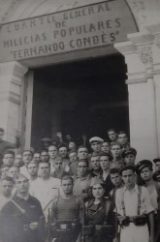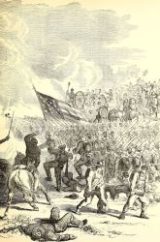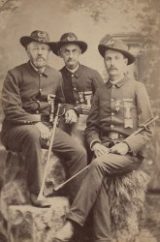 Bio
Bio
David Allen Grossman was born on the 23rd of August, in the year of 1956, in Frankfurt, Germany. Grossman is an American writer and author, specializing in the psychological studies, most notably the one concerning the psychology of murder.
David is also a retired lieutenant colonel, having worked in the army of the United States of America. His service in the US Army was as a sergeant in the 82nd Airborne Division, then a platoon leader in the 9th Infantry Division, then a general staff officer, following that he was a company commander in the 7th Infantry Division. Additionally, he was a paratrooper.
Best David Grossman Books
| Photo | Title | Rating | Length | Buy |
|---|---|---|---|---|

|
On Killing | 9.82/10 | 367 Pages | Check Price On Amazon |

|
On Combat | 9.74/10 | 395 Pages | Check Price On Amazon |

|
On Killing Remotely | 9.66/10 | 368 Pages | Check Price On Amazon |

|
Assassination Generation | 9.54/10 | 272 Pages | Check Price On Amazon |

|
The Two-Space War | 9.32/10 | 519 Pages | Check Price On Amazon |
Career
David graduated from the Ranger School. At West Point, David went on to start his career as a professor of psychology. In February of 1998, David formally retired from the military as a professor of military science at the Arkansas State University. He has been an expert witness in several state and federal court cases, even going so far as to be on the prosecution team of the well-known case of – United States vs. Timothy McVeigh. As such, we will now take a look at what the best Dave Grossman books, in fact, are.
On Killing

 Human Disinclination
Human Disinclination
Grossman’s On Killing was published in 1995. It, upon its publication, was hailed as a landmark of the psychology of murder in the battlefields. It is one of the best-selling books by Grossman.
It’s an encouraging fact that the vast majority of soldiers aren’t inclined to killing. However, the armies of the world have created methods on how to surmount this innately human disinclination.
Not only the army, though, is to be held as responsible for the making up of these new methods: contemporary society and media, too, are to blame. This is one of the most important points in the book, and Dave succeeds in hammering it home quite nicely. That’s why it is considered one of Dave Grossman’s best books by many.
How Can You Teach That?
If one is intrigued or bears any kind of interest about how people are exactly taught or conditioned to kill, then how they behave after said conditioning is completed, then On Killing is the number one read for you. Something that Dave holds steadfast is the opinion that we, as humans, don’t think fondly of impaling others on a lengthy, pointy instrument.
The instrument that Dave speaks about is a bayonet. Dave reveals that the average human will always choose to cut or gash someone than stab through them with a ridiculously long spear. If one is intrigued by such facts, Dave tells us that, as soldiers, they are taught that the most efficient way to kill someone is to stab them, via bayonet, in the kidney from the rear. The person will be rendered inert and mute.
Daunting
Dave also tells us that the idea of killing someone when you’re in their general proximity is a daunting prospect. As such, dropping a bomb on an arbitrary city or township is easier than pointing a gun to someone’s head and pulling the trigger. An extensively fascinating read, On Killing, is a brilliant book. Everyone should take up reading it. After all, it’s not unfound that we picked it to be on our list of the top Dave Grossman books.
On Combat

 Psychological Toll
Psychological Toll
On Combat by Grossman was published in 2004 and is a treat and a half. Grossman in On Combat tackles the subject matter of what happens to the human body – and, more acutely, the brain – when one is under the terrible stresses of a deadly bout.
How does one’s breathing, heart, perception, nervous system, and even memory, deal with the prospect of being killed or being the killer? Grossman takes a look at how combat between humans has progressed over the years, and how the weight of such activities hangs over the quintessential soldier. This is one of Grossman’s books ranked as the best-selling, so make sure to check it out.
Own Experience
Early into this one of the most popular books by Dave Grossman, he tells the readers that, in his own experience, he has met and duly categorized people into three distinct categories – wolves, sheep, and sheepdogs.
The wolves are the predators of the sheep, the sheep are protected by the sheepdog and are the victims of the wolves, while the sheepdogs keep the predator from being as cruel as it would prefer. The vast majority of sheep are unable to cope with the idea of sheepdogs, but they still are happy that they exist when a pack of wolves comes strolling by.
Quality Insight
Grossman does a superb job at giving quality commentary and insight into the psychology of being a warrior, how it is that men and women, alike, deal with the fearful experiences of war, and such. A few words are spared, also, for the mass shootings that have plagued the US for quite some time now. Grossman’s words penetrate even lead. A true runner-up for the best-rated Dave Grossman books, in our opinion.
On Killing Remotely

 Rules Of Engagement
Rules Of Engagement
If you have any interest whatsoever in current military affairs, then this latest book from Dave Grossman is one that you have to read! It is known by now that any time in history when there has been armed conflict, there are rules of engagement which determine how this conflict between adversaries will go.
Over time, technology has advanced from armor during the Middle ages to the nerve gas used during World War I. It then shifted to weapons of mass destruction. The rules are constantly changing. In our day and age, with technology at its peak, killing the enemy can be done almost risk-free – like playing a videogame.
What Makes Us Human
With technology where it is today, the question has to be asked: what constitutes warfare? It brings with it a whole range of other issues, like the effect that remote combat has on soldiers, or what the unanticipated repercussions could be. Grossman teams up with Lt Col Wayne Phelps, a former commander of the Remotely Piloted Aircraft unit, to answer these questions.
Dave Grossman’s books are definitely the best when it comes to teaching you something new, and this one is no different. I had never heard the term “chair force” before reading this book, and I found the questions and answers absolutely fascinating. They go into the ethics of today’s warfare, while reminding us that it should never be easy to kill another human being.
Assassination Generation

 Video Games
Video Games
We’ve all been part of, or heard, conversations where people discuss the effect that video games have on our youth in today’s society. Of course, there are many differing opinions, as with anything. However, I am a firm believer in doing the research and learning about both sides before making up your mind.
This highly ranked book from Dave Grossman seeks to educate readers on how violent video games have brought about a new era of homicide, and what we have to do to fix it. Looking at all the shootings that have happened in America in the last two decades, one has to wonder what links these horrific acts. Grossman is of the opinion that it is violent videogames that teach young people to kill.
Let’s Talk
Grossman certainly did his research before he wrote this book. He draws on crime statistics, scientific studies of the teenage brain, and the latest social research. He points out how most humans are not natural born killers, and yet, video games that depict savage behavior so casually seems to be turning people into that. He explains how the mind can be warped by games and have potentially fatal outcomes.
Now, what Grossman writes in this book does not apply to everyone. You get plenty of people in the world who can play video games and go about their life as usual. However, the impact that it has had cannot be ignored. I found this book very interesting and a good starting point for having this discussion, especially around this new epidemic of murders that has been taking place.
Two-Space War Series

 Psychology Still Present
Psychology Still Present
Grossman’s fiction writing comes to full fruition in his short series – short as in only two books – Two-SpaceWar. It is comprised of The Two-Space War and The Guns of Two-Space. The former was published in 2005, while the latter was in 2007.
While this is an attempt at fiction writing – a very successful one –, Dave’s psychological insights into the faculty of killing are still as present as in any of our other entries. It is one of the best Dave Grossman series.
600 Years in the Future
The story of the series is set around six-hundred years into the far future, with mankind learning to maneuver and move about the stars. With humanity thrusting itself into the depths of the cosmos, other words are found. The plot is genuinely an odd one, being a conglomerate of fantasy and science fiction.
As enticing a read as any of Dave’s. Words can’t really describe or do justice to the stories, as all of them, for example, tactics that are employed are grounded in reality, while maintaining the exciting air about them. The psyche described for the characters is a truthful one, showing us glimpses of soldiers on the frontline of battles. This book truly deserves its place in our Grossman book reviews.
The Guns of Two-Space
The second book adds on the loops that the first left and ramps up the intensity to a hundred. The characters, in both books, leave us wanting more. We see them in the heat of battles, then in the mundanities of their everyday life, then in their family life, so that we see them grow evermore.
Michael Englert
Michael is a graduate of cultural studies and history. He enjoys a good bottle of wine and (surprise, surprise) reading. As a small-town librarian, he is currently relishing the silence and peaceful atmosphere that is prevailing.





